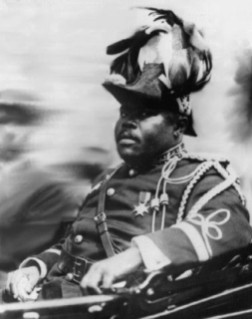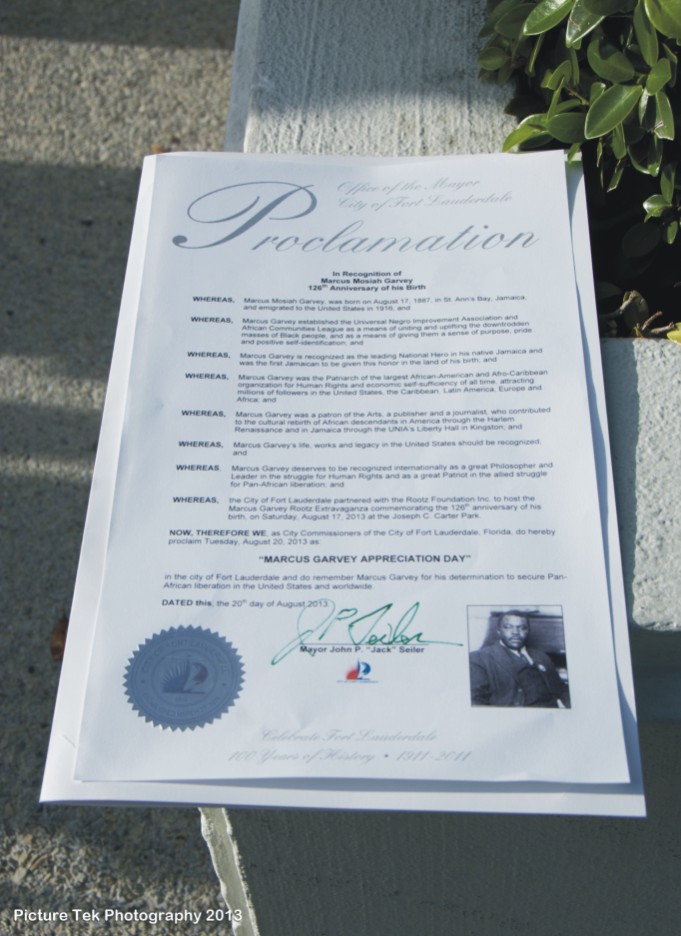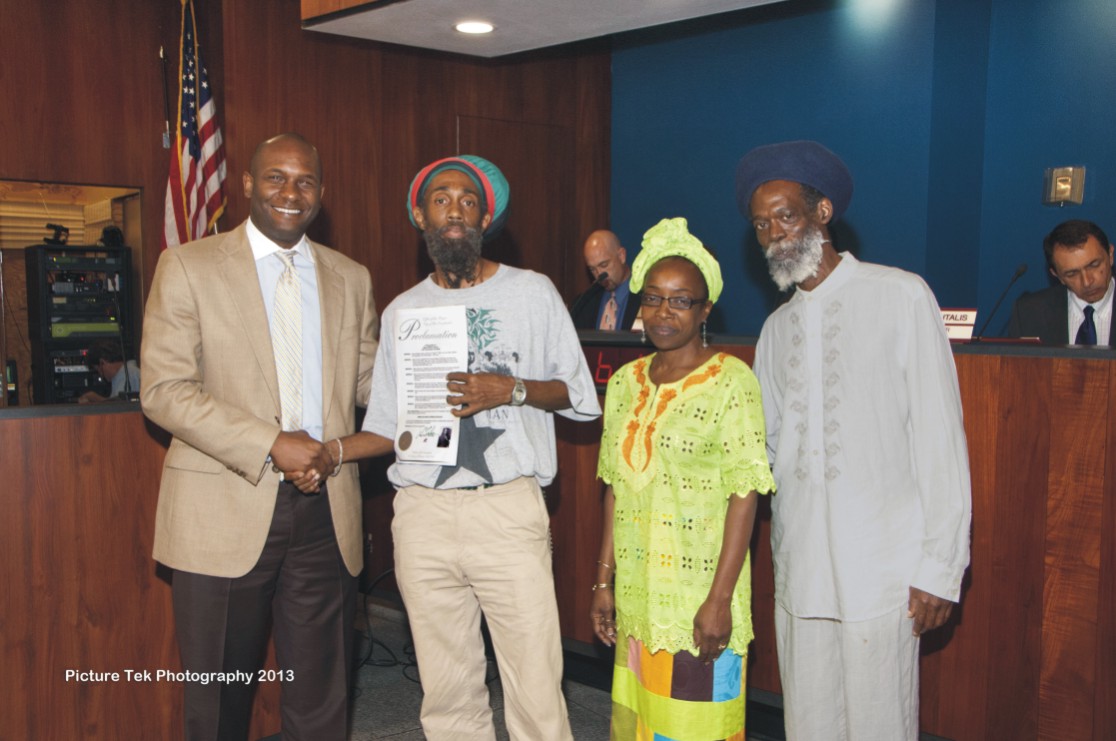Brother Garvey Says....
There is no force like success, and that is why the individual makes all effort to surround himself throughout life with the evidence of it; as of the individual, so should it be of the nation. - Marcus Garvey
Proclamation

Garvey Was....
Garvey was a Jamaican-born black nationalist who created a 'Back to Africa' movement in the United States. He became an inspirational figure for all future civil rights activists
Marcus Garvey.
The Man.
Marcus Mosiah Garvey, was born on August 17, 1887, in St. Ann’s Bay, Jamaica. The Jamaican-born Garvey became a National/International Hero in Jamaica, the Caribbean, the Americas and in Africa, after he organized and led the Universal Negro Improvement Association and African Communities League, the UNIA-ACL.

Marcus Garvey established the UNIA-ACL in Kingston in 1914 as a means of uniting and uplifting the downtrodden masses of Black people, and as a means of giving them a sense of purpose, pride and positive self-identification.
In 1916 he emigrated to the United States where he soon established his organization’s headquarters in Harlem, New York. The UNIA-ACL subsequently attracted millions of followers in the United States, the Caribbean, Latin America, Europe and Africa, and accordingly, Marcus Garvey became the Patriarch of the largest African-American and Afro-Caribbean organization for Human Rights and economic self-sufficiency of all time. Indeed, the UNIA was the largest international mass movement of Black people in the history of the United States and the world. Marcus Garvey encouraged Black people to work together, urged them to start and run their own businesses, and advocated a return to Africa. In addition, he was a Patron of the Arts, a Publisher and a Journalist, who contributed to the cultural rebirth of African descendants in America through the Harlem Renaissance in the 1920s and in Jamaica through the UNIA’s Liberty Hall in Kingston in the 1930s.

However, Marcus Garvey’s leadership in the African-American struggle for the human and civil rights of Black people during the 1920’s caused Garvey to become the target of surveillance and harassment by the United States Government law enforcement agencies. He thus became the most loved and the most hated Black man in America - the most loved by Black people and the most hated by Whites. Garvey was deported from the United States back to Jamaica in 1927, following a 1923 conviction on a mail fraud charge that is widely seen as having been politically motivated.
While in Jamaica, Garvey formed the island’s first political party – the Peoples Political Party (PPP) and hosted a number of UNIA international conventions. After years of harassment and even imprisonment by the colonial regime Garvey left Jamaica in 1937. He eventually passed away in England during 1940. Twenty-four years after his death, the Jamaican government brought back his remains from Britain, re-interred his body at the National Heroes Park in Kingston and declared Garvey to be a National Hero in 1964. Today Marcus Garvey is recognized as the leading National Hero in his native Jamaica. He was the first Jamaican to be given this honor in the land of his birth.
In recognition of the magnitude of Marcus Garvey’s life, works and legacy in Jamaica, the United States and the world, he deserves to be acknowledged internationally as a great Philosopher and Leader in the struggle for Human Rights and as a great Patriot in the allied struggle for Pan-African liberation.

Video
MARCUS GARVEY SPEECH JULY 1921
"Explanation of the Objects of the Universal Negro Improvement Association" is a studio recording made by African-American leader Marcus Garvey in New York in July 1921, and adapted from his longer speech "A Membership Appeal from Marcus Garvey to the Negro Citizens of New York".